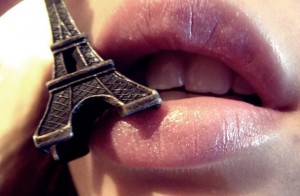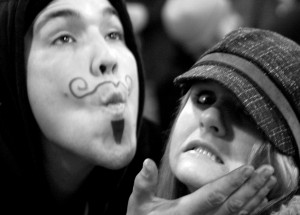Psychosexual dysfunctions in France
“Sex is as important as eating or drinking,” wrote French novelist Marquis de Sade, “and we ought to allow the one appetite to be satisfied with as little restraint or false modesty as the other.” In comparing American women to French, Thomas Jefferson observed that while Americans had “the good sense to value domestic happiness above all other”, in France it was a comparison of “Angels to Amazons.” Jefferson was not only speaking of female aloofness in terms of politics and the work force, but regarding sexuality too. Echoing the sentiments of Sade, French society has long developed a reputation for its laissez-faire attitude about sexuality – one that views even sexology as giving too much thought into sexuality. The May 1968 protests in France may have changed little politically for France, but its social impact was massive. Traditional morality melted into more liberal ideals of morality, which included the emphasis on feminist equality and sexual liberation. Today, in many corners of Paris, sex clubs are abundant. In France, sexology is not categorized as a specific method of psychotherapy. What this signifies is that French society has a vastly different understanding of what constitutes psychosexual health and dysfunctions in relation to the more puritanistic views seen in the more sexually conservative countries

Long before 1968 shook gender identity and sexual liberation, the French Revolution brought about political and social upheavals that still resonate today. Removing itself from the traditional order of society that was based on feudalism and privileges for the aristocracy and the Catholic clergy, the French Revolution carried the battle cry: “Liberté, Egalité, Fraternité” (Liberty, Equality, Fraternity). What the Revolution did was turn French values on its head, assaulting conventions with a sledgehammer. The French Revolution was unprecedented in that it attempted to convert the ideals conceived by the minds of Enlightenment thinkers into practical implementation. Principles such as freedom, equality, and inalienable rights prominently figured into reshaping French society. Indeed, Marquis de Sade was amongst the staunchest supports of absolute freedom unrestraint by traditional morality. His depictions of sexual fantasies involving violence and blasphemy against the Church earned him prison sentences and the scorn of the aristocracy. Although Sade played a small role, it remains significant. The French Revolution sought to invert the order of the old society entirely including the sexual dimension of French society.
When Napoleon Bonaparte removed the crown from the Pope Pius VII’s hands and placed it upon his own head, it symbolized that the French state had replaced religion as the ultimate institution. As a result, much of the Puritanism authority that Catholic tradition held over French society vanished. Where the 1968 shattered the glass ceiling as far as double standards in sexual behavior between men and women, the degradation of moral significance attached to sexuality is rooted in the ideals espoused by the Revolution which still influences the psychosexual health of French.
In 2008, a “Study of Sexuality in France”, one of the few official sexology reports in France commissioned by France’s National Research Agency on AIDS, was released surveying over 12,000 French. What makes it noteworthy is that it reported that French women have closed the gap in terms of the number of sexual partners and age of initiation to their male counterparts. With the increase of sexual content in public media, French are engaging in sex from a younger age than ever before with the average age of first sexual intercourse to be 17.2 years for French men, and 17.6 for women.
However, is there a correlation between sexual liberation and prevalence of psychosexual dysfunctions in French society? In the same report, 36% of French women say they’ve suffered “frequent or occasion” sexual dysfunction within the year prior to the study, while just over 21% of French men declared the same. Research has indicated that one in three French men over the age of 40 suffer from erectile dysfunction, generally of moderate severity. Today, an estimated 500,000 patients visit sex counselors annually in France. These signs expose the myth of sexual invincibility of the French.

Studies regarding the role of sexology in France reflect French concern regarding psychosexual dysfunctions. In countries such as the United States, institutions are devoted to dealing with psychosexual dysfunctions. By contrast, two thirds of sexologists in France are actually only full-time physicians. This reveals a certain paradox about psychosexual health in France. People from all over gravitate to France because the erotic attachment assigned to the human body is less apparent in French society, with nude beaches common sites. Yet, despite this apparent openness towards sexuality, French are also reserved. Whereas in some countries niches like sadomasochism has massive following, French are comparatively more conservative with sexual niches and transparency. For example, when world leaders face public scrutiny for sexual affairs, the French restrict it to be none of their concern.
[ad#downcont]The causes of psychosexual dysfunctions in France are the same as they would be in Japan or Canada. Feelings of stress, guilt, anxiety, trauma etc. can all factor into the development of psychosexual dysfunctions. Where the French are different is how they choose to deal with it. Psychosexual dysfunctions are not given the same significance as they are in cultures where sexual virility or self-control is so pronounced. In France, psychosexual dysfunctions are unfortunate and should be treated if treatment is sought. But, it need not be a source of such stress and anger that terms such as ‘deranged’ or ‘unstable’ are thrown around. French attitudes toward psychosexual dysfunctions is c’est la vie.
